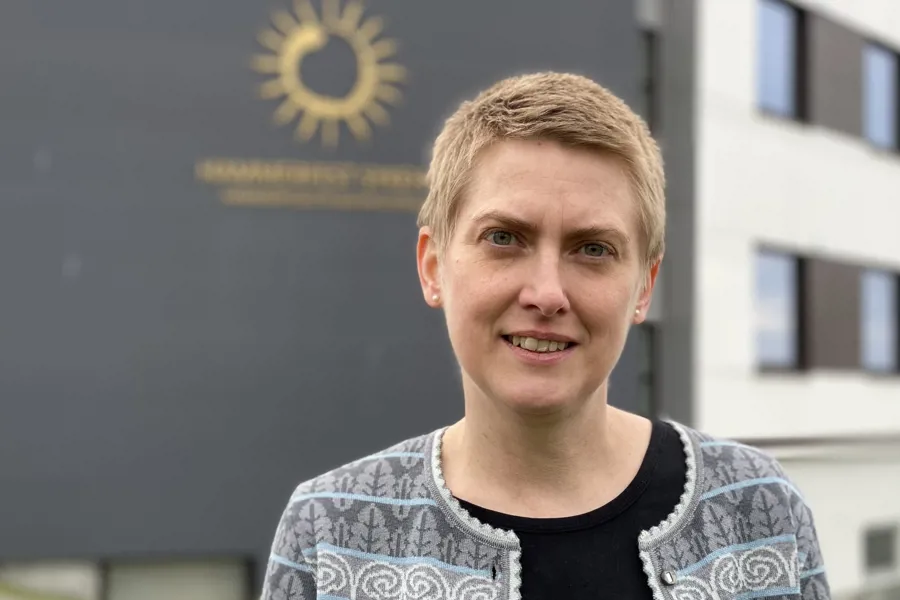Malin Fors
Power Issues in Psychotherapy: Reflections on psychoanalytic theory and clinical cases.

Disputas september 2021.
Malin Fors er ansatt som psykologspesialist og forsker i Finnmarkssykehuset.
Sammendrag:
The dissertation examines power issues in psychotherapy from different angles of vision and integrates diverse perspectives on power; for example, professional power, transferential power, sociopolitical power, and bureaucratic power. Through topics of the medical record, the patient-therapist relationship, geographical space, minority issues in diagnosis, and clinical challenges involving third parties, I explore unconscious and preconscious power dynamics. The work aims to integrate, and make clinically accessible, some diverse and relatively abstruse writing on power as it may affect the treatment situation. The overarching conclusion of the dissertation is that addressing power in psychotherapy is a subtle, complex, and important ongoing process that has not been fully theorized. It is not a question that can be clarified once and for all. Nor is it a question that is fully separable from the therapist's own subjectivity, internalized norms, or social experiences with privileges and/or experiences of discrimination. The work is based in traditional literature studies (Jesson, Matheson & Lacey, 2011) and the case study method (Fishman & Messer, 2013; McLeod, 2011; Yin, 2012), in which the focus is on finding analytical and theoretical generalizations (Yin, 2012). In an attempt to make the work clinically relevant, I emphasize that even the most morally and cognitively sophisticated therapist (and patient) inevitably will have internalized elements of societal norms and prejudices, consciously or unconsciously (e.g., Davids, 2003; Layton, 2006b; Yancy, 2015).
In the first study (Fors & McWilliams, 2016), my co-author and I explore the undertheorized question of sharing patients’ medical records as part of the therapeutic process in mental health treatment. The intervention of collaborative reading of medical records is hence put in a therapeutic context and integrated with the goals and language of psychotherapy.
The second study (Fors, 2018b) is a theoretical paper, formulating urbanity as a seldom-addressed privilege and exploring implications of the misrepresentation or absence of the rural world on the “map” of psychotherapy. I “countermap” urban biases with respect to power, space, and time, and I explore some implications for therapeutic ethics, the frame, self-disclosure, and potential interpretation as I investigate the urban valuing of specialized expertise over wisdom, urban disconnection from weather and distance, urban colonizing behavior, the dumping of incompetent professionals into rural areas, and the urban sense of entitlement to anonymity.
The third study is a theoretical paper (Drescher & Fors, 2018) analyzing how minority issues are framed in the Psychodynamic Diagnostic Manual, 2nd ed. (PDM-2) (Lingiardi & McWilliams, 2017). I conclude that the PDM-2, despite giving greater attention to minority issues than other classification systems, gives no clinical guidance for issues that arise when a minority therapist treats a minority patient. I posit that distortions of envy, internalized subordination in both parties, countertransference, idealization, disappointment, and unspoken wishes to be understood by someone on whom sameness can be projected are characteristic of such dyads.
The fourth study (Fors, in press) is a theoretical paper in which four domains of power are highlighted. These areas include professional power, transferential power, socio-political power, and bureaucratic power, all of which are explored through the case of “Sonja.”
The fifth study (Fors, 2020b) is a theoretical contribution suggesting a conceptual model of how relative power in psychotherapy might be framed. I offer an integrative model, the matrix of relative privilege, as a useful tool for exploring how social power is ongoingly negotiated in clinical dyads. It potentially brings social justice concerns into the technical sphere, not simply the ethical sensibility, of the consulting room.